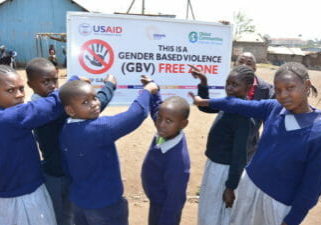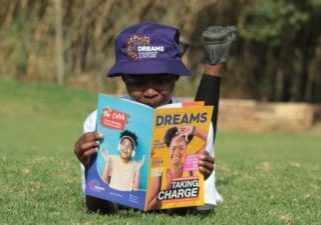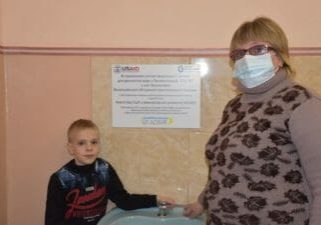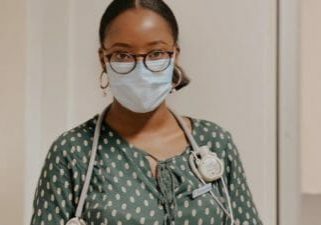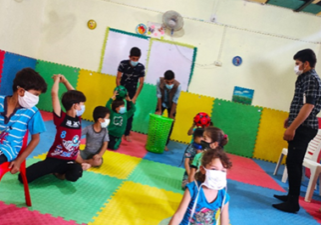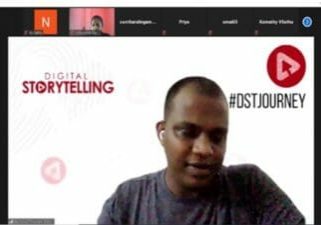News > Blog
Rising the Tide with Michele Gay
Published 01/21/2021 by globalcommunities
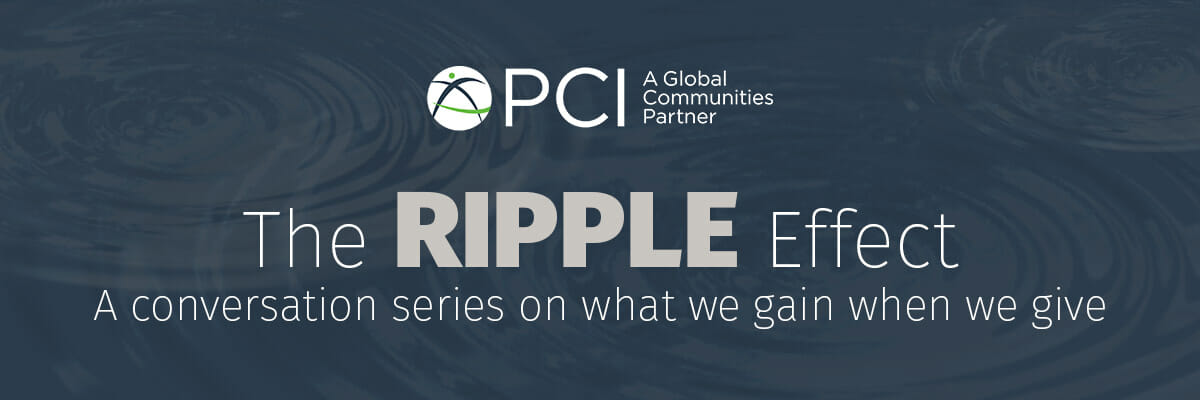
If you ask LimeLife by Alcone, the perfect foundation to any beauty routine is contributing to a cycle of empowerment. Since 2017, the cosmetic line’s charitable arm, the Brighter Together Foundation, has donated more than half a million dollars to PCI’s Women Empowered Program. Contributions are raised by LimeLife Beauty Guides and go toward funding life and basic business skills training for women in Guatemala, Nicaragua and Tanzania. In this edition of “The Ripple Effect,” learn more about this unique partnership and LimeLife co-founder and co-CEO Michele Gay’s take on the value of cross-cultural exchange and women’s financial empowerment.
This interview has been edited for length and clarity.
 How would you describe LimeLife by Alcone and Brighter Together Foundation to people who might not be familiar with your work?
How would you describe LimeLife by Alcone and Brighter Together Foundation to people who might not be familiar with your work?
We actually have three entities that we center around this concept of female financial empowerment. One is LimeLife, which is a direct sales beauty brand. Then, we have the Brighter Together Foundation, which provides donations to PCI and sets up money for women’s leadership summits. And the third one is something we call the LimeLife Fempire Fund, which is an investment group that primarily funds female entrepreneurs. We actually don’t see these entities as very different. It’s all about helping women build a sustainable business through coaching, through a bit of opportunity and then supporting them on that journey as much as possible. We really believe in globalization in terms of elevating women’s statuses and financial empowerment. We get down and dirty. We roll up our sleeves and do it for ourselves, and then we show other women how to do it.
What first attracted you to partnering with PCI or what was it about PCI that made sense to your company?
I used to be a teacher, and I used to work for Teach For America. When you enter your career from the lens of education, especially in communities that need the most attention, you can see how the work done in classrooms can create lifelong change and an actual shift for those communities, neighborhoods and individuals. If we don’t offer education or a pathway of growth for people, then we might as well put them in invisible handcuffs. It is the responsibility of the community that is thriving to reach over and say, “This is a pathway of growth for you, and I want you to be part of it. I’m going to help you and walk with you until you can do it.”
What ultimately got me interested in the work that PCI does is the understanding that there’s a fine line between enabling women and empowering women. When you create a culture of enablement, you basically extinguish the flicker of light of any growth potential they have. When you actually educate a woman, when you show her that pathway, you’re taking her to a place of empowerment where she can take that moment of flight or stay landed and that’s her decision. PCI and the Women Empowered program is actually doing the hard work of really getting in there and giving a woman this path to financial freedom for herself and her family. Then it’s up to her to take it. When people ask me to describe WE, I always tell them, “It’s not just teaching a woman how to fish, it’s teaching her how to smoke and save the fish for another day.”
That’s what makes the difference between having a sustainable vs. short-term impact, right?
Exactly. When I was visiting Guatemala, I met this woman who had been in a PCI WE group when you first started in Guatemala. Her moment of choice from that experience led to her now train multiple groups in her neighborhood independent of your program. That, to me, was really incredible, and that’s what we do at LimeLife.
As you compound the leadership down and train women to train, that’s how you create change. When I heard what these WE groups in Guatemala were able to collectively save in a year, it blew my mind. I was so inspired by the discipline that it must take for these women to do that. The vision, not just the discipline, but the vision of how doing without now is going to create a better place for my children in 10, 20, 50 years. That, to me, is really the power of women. PCI tapped into it, and you executed that power.
You mentioned before that part of the Brighter Together Foundation’s mission is funding Women’s Leadership Summits. Where did that idea come from and what do those gatherings entail?
When I talked to the women who are part of WE in Guatemala, I recognized the thing that was missing with my sales field in the United States. The stories are similar in that they have anxiety, they have fear of judgment, they have fear of failure and they’re juggling a million responsibilities in their lives. The difference between our experience and their experience, though, is that we have a ton of opportunity and they have a pinhole of opportunity to fly through. Still, it doesn’t hold them back. When I returned from my trip, all of the Americans kept telling me, “We have to do a service trip there. We have to do a service trip there.” And I was like, “A service trip? These women could run circles around us.” I knew they could teach us a lot more about getting out of our own way than we could help them. That’s where the Women’s Leadership Summit came into play. We needed someone to give us a little bit of perspective.
In 2019, Brighter Together hosted the first Women’s Leadership Summit in Antigua, Guatemala. In partnership with PCI’s WE program, LimeLife Beauty Guides listened to the stories and experiences of women from Guatemala’s WE groups as well as guest honoree speaker and female activist Zainab Salbi. The two-day summit focused on the impact women can have when they come together in community and uplift one another through sharing their experiences and stories.
What kind of lessons have you learned from this cross-cultural exchange with WE, and how has it impacted your own programming?
The level of consumption that happens in American households is huge, and I’m part of that system, too. To see the discipline and the vision of these women, we needed more of that in America. When they started talking about how they turned “no’s” into opportunity, it got the American women thinking, “OK, I have everything I need, and I’m still creating invisible hurdles for myself.”
Basically, I realized that the fear around money or the uncomfortableness around money that is addressed in the Women Empowered program was never addressed in our program at LimeLife. We do a lot with personal development, but if you’re not addressing the issue of money with women and getting them to elevate their financial empowerment, it’s always going to drag them down. What Women Empowered does is they really normalize the conversation around money and make it acceptable.
In the Women Empowered program, you have to have a vision of where you want to be as a person and as a leader, and you have to have a vision of your finances. Those two things need to happen consecutively.
We just started our own type of groups in the United States that follow a lot of the WE protocol. We call them Brighter Together chapters and they’re organized at the regional level. Right now, they meet online around four to six times a year to talk about financial savings and financial goals but eventually they’ll meet in person. We’re trying to take this concept of community and financial discussion to more and more women and to hold each other accountable. My vision is that one day these chapters can work together with WE groups across the world, travel and meet these women firsthand and really learn from each other. It’s truly a circle of support that we have going on with this partnership.

What contribution or achievement would you say you’re most proud of with the Brighter Together Foundation?
People might label it naïve, but it’s a very hopeful and tangible feeling to me that through the Foundation and through the work that Women Empowered does, we can significantly change the world. Some will challenge me and say, “Don’t you think selling makeup and skincare is a little trivial?” But no, there’s nothing trivial about what we do. These products actually elevate the financial aspects of women’s lives and also contribute to the training of women abroad. That circle of influence and female financial empowerment that is being created for as many women as possible is really something to be proud of. It doesn’t matter if they’re women in their own neighborhood, in their own state, in their own country or abroad. We know that if we can rise the tide and all boats rise, then we’ll create real change.
What do you wish people knew or understood about women’s empowerment or even entrepreneurship?
We had this amazing keynote speaker. His name is Shirzad Chamine and he wrote a book called Positive Intelligence. When he spoke, he talked about these gold statues that were in his village. When the village was about to get invaded, they covered the gold statues in white plaster to keep people from wanting to take them. During the invasion, no one realized there was gold underneath, so they just left them behind.
Over time, I think women have been socialized to absorb so many layers of plaster to hide their gold. What I want people to understand about women’s empowerment is that every woman is going to show up with various layers of plaster on top, and she should never be dismissed because of that. Empowering women means helping them chisel away at that plaster, so they can get to more gold and really see their value. I believe in that, because I watch it happen every day in my life.


